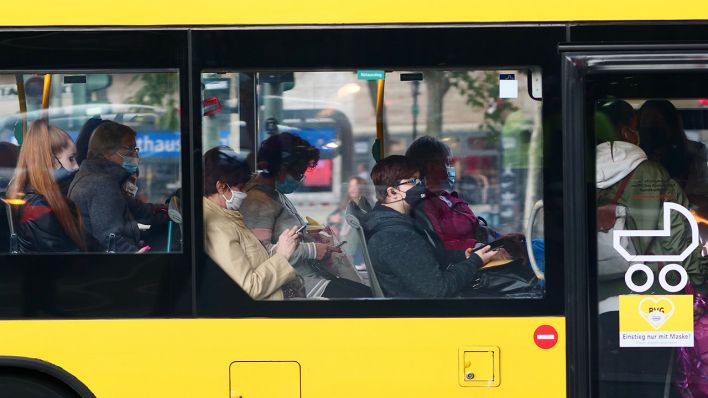It was only on Friday that the federal government launched the controversial new regulation of the Infection Protection Act. The Berlin Senate has now decided to only lift the protective measures after a transitional period.
–
The measures against the corona pandemic will be extended in Berlin until March 31st. The Senate decided this in a special session via video link on Saturday.
From April 1st, only a few so-called “basic” protective measures will apply. These include the obligation to wear masks in local public transport as well as in hospitals and nursing homes. In certain areas, compulsory testing should also continue, for example in schools.
–
Meanwhile, a dispute is brewing in the red-green-red Berlin coalition over the application of the new hotspot regulation from April 1st. According to the Federal Infection Protection Act, which has now been amended, municipalities in certain regions can also impose pandemic measures such as compulsory masks, distance rules and access restrictions after April 1st.
The prerequisites are that there is a risk of a “dynamically spreading infection situation” due to an even more contagious virus variant or that the number of new infections overwhelms the hospitals. “But we don’t see that at the moment,” said Berlin’s Governing Mayor Franziska Giffey last Tuesday. “That’s why there will be no basis for declaring a hotspot here in Berlin, even given the current situation.”
–
However, objections come from Giffey’s coalition partners. Individual neighborhoods or districts would very well be designated as hotspots, says the health policy spokeswoman for the Greens, Catherine Pieroth. “We can use it to selectively provide individual residential areas, neighborhoods or districts with measures.” The easing would come too early, Pieroth told rbb.
Tobias Schulze, health expert for the left in the Berlin House of Representatives, spoke in the rbb interview for the proclamation of corona hotspots in Berlin. However, he doubts that the framework conditions created for this in federal law are legally secure, since the criteria for hotspots are unclear and a matter for interpretation by the federal states. “In the end, the definition of these criteria will probably be left to the courts. That brings uncertainty to the fight against infection and is the last thing we need right now.”
–
Broadcast: evening show, 03/19/22, 7:30 p.m
–

